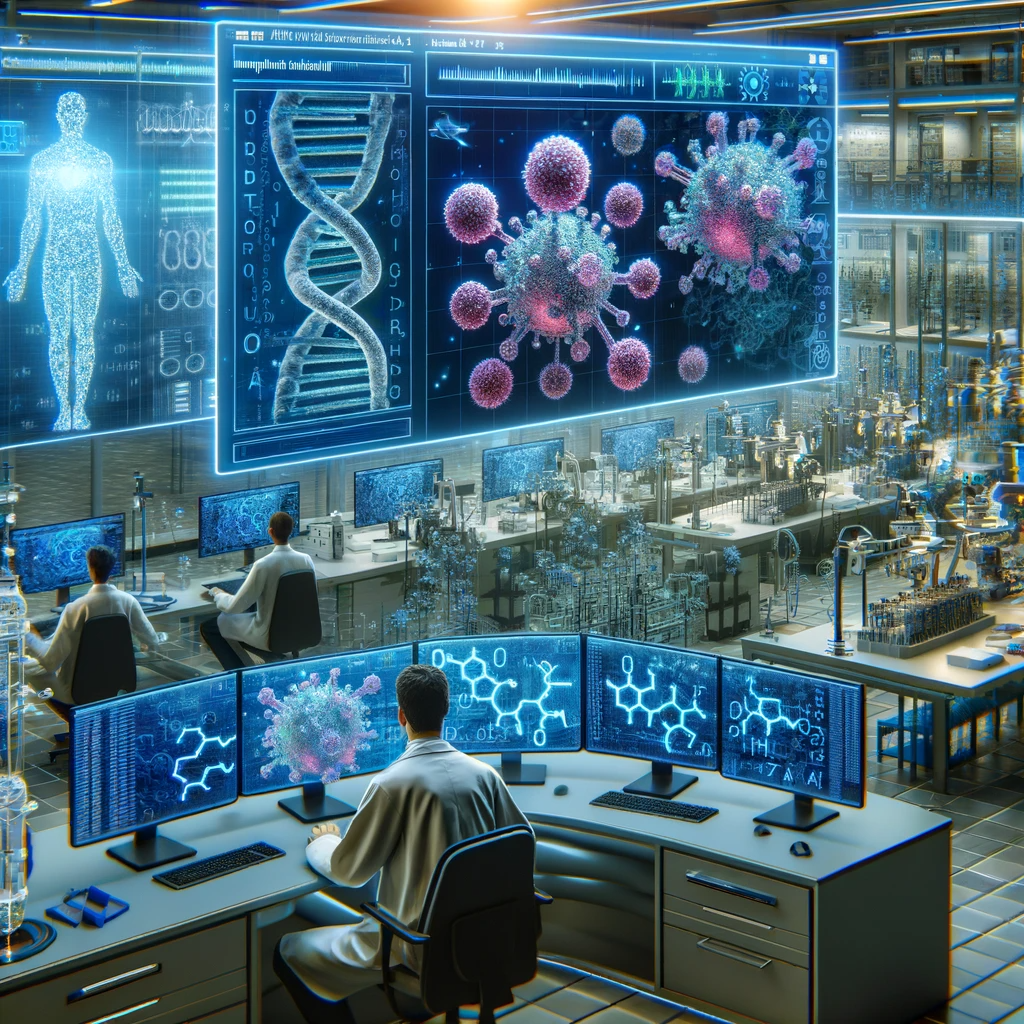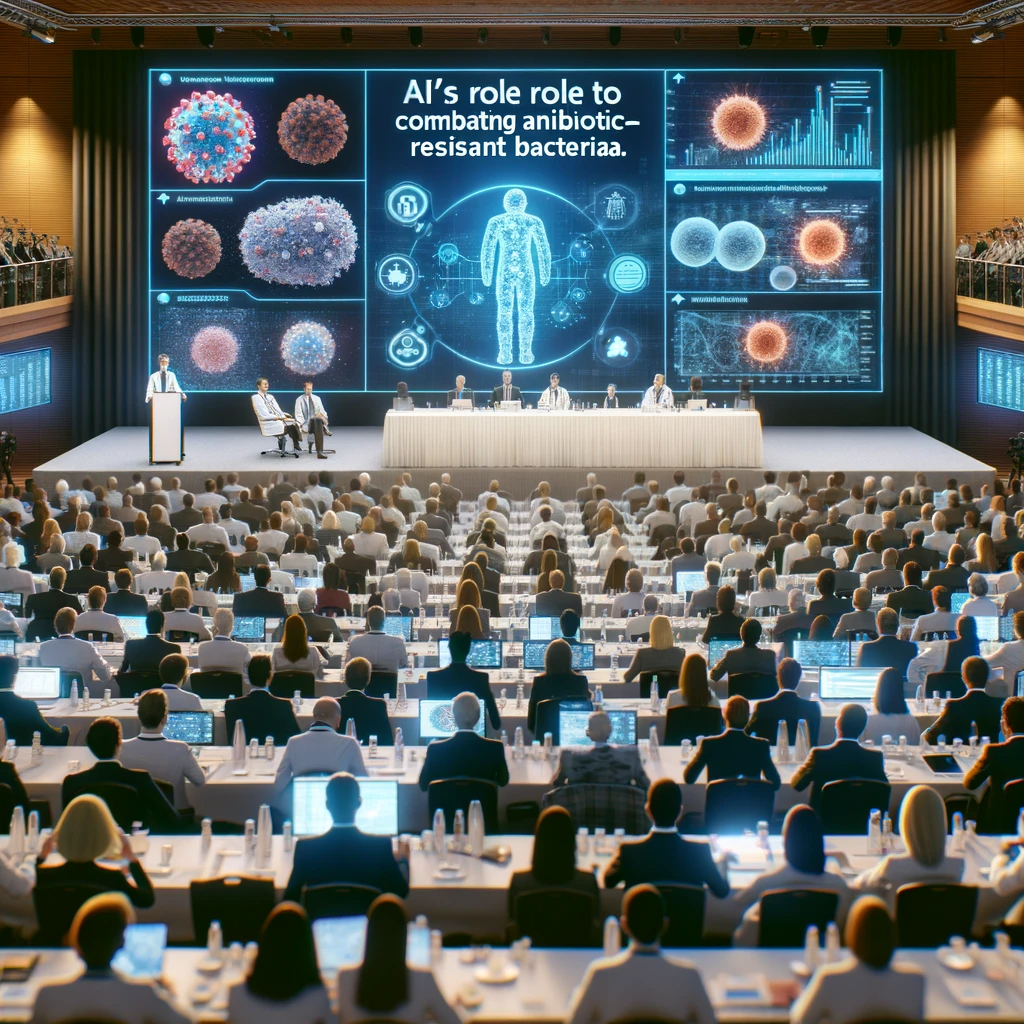The Rising Threat of Antibiotic-Resistant Bacteria
In the realm of public health, there exists a looming crisis that demands urgent attention and innovative solutions – the relentless rise of antibiotic-resistant bacteria. Antibiotics, once hailed as miraculous weapons against infections, are losing their effectiveness as bacteria evolve and develop resistance mechanisms. The consequences of antibiotic resistance are far-reaching, affecting healthcare systems, economies, and, most importantly, the lives of patients worldwide.
This article embarks on a journey into the battle against antibiotic-resistant bacteria, shedding light on a potential ally in this war – Artificial Intelligence (AI). As we delve into the depths of this escalating global health concern, we will explore the remarkable ways in which AI is being harnessed to develop new antibiotics and identify effective treatment strategies against resistant strains.
Antibiotic resistance is not a distant threat; it is a clear and present danger. Without effective solutions, we risk a future where common infections become life-threatening once again. However, in the face of this challenge, AI emerges as a beacon of hope, offering new approaches, speed, and precision in the fight against antibiotic resistance. Join us as we uncover the potential of AI in this critical battle and examine how it is changing the landscape of healthcare and microbiology.
Understanding Antibiotic Resistance: A Looming Crisis
Antibiotics, once considered medical marvels, have been instrumental in saving countless lives by effectively treating bacterial infections. However, the widespread and often indiscriminate use of antibiotics has inadvertently contributed to the emergence of antibiotic-resistant bacteria. This section delves into the concept of antibiotic resistance and the pressing crisis it presents:
The Evolution of Antibiotic Resistance: Antibiotic resistance is a phenomenon where bacteria adapt and develop mechanisms to survive antibiotic treatment. This resistance can occur naturally or as a result of overuse and misuse of antibiotics. Common bacteria such as MRSA and CRE have developed resistance, leading to severe infections that are challenging to treat.

Public Health Implications: The implications of antibiotic resistance are profound. Patients with resistant infections face a higher risk of treatment failure and mortality. The economic burden associated with antibiotic-resistant infections, including extended hospital stays and costly alternative treatments, places a strain on healthcare systems and economies.
The Urgent Need for Innovative Solutions: Addressing antibiotic resistance is a matter of urgency. The availability of effective antibiotics is limited, and the development of new ones is slow. We must explore innovative approaches, and AI is emerging as a promising solution.
AI in Drug Discovery: A New Hope
As antibiotic discovery faces challenges, including the difficulty of finding new compounds and the slow pace of traditional drug development, Artificial Intelligence emerges as a beacon of hope. This section explores how AI is transforming the landscape of drug discovery:
Revolutionizing Drug Discovery with AI: AI-driven drug discovery is a game-changer. AI algorithms analyze vast datasets, predict molecular interactions, and accelerate the screening of potential drug candidates. This expedites the identification of new antibiotics, which is crucial in the battle against resistance.
Advantages of AI in Drug Discovery: AI offers several advantages in drug discovery, including speed and cost-efficiency. It can explore a broader range of chemical compounds, identify novel drug targets, and even repurpose existing drugs for antibiotic use. AI’s computational power enhances creativity in drug design.
Success Stories and Promising Developments: Real-world examples abound where AI has successfully contributed to antibiotic discovery. These projects offer hope and demonstrate the potential impact of AI in addressing antibiotic resistance by expanding the arsenal of effective antibiotics.
In the quest to combat antibiotic resistance, AI’s ability to revolutionize drug discovery represents a ray of hope, promising to replenish our dwindling antibiotic resources and confront resistant bacteria with renewed vigor.
Identifying Resistant Strains with AI: Precision Medicine for Infections
As antibiotic resistance continues to challenge healthcare systems worldwide, the importance of precise diagnosis and targeted treatment strategies cannot be overstated. AI is emerging as a valuable tool in the battle against antibiotic-resistant bacteria, offering precision medicine approaches tailored to individual patients and their specific infections. In this section, we delve into how AI is transforming the identification of resistant strains and enabling personalized treatment:
Harnessing AI for Strain Identification: AI can analyze genetic data from bacterial samples to identify antibiotic-resistant strains with remarkable accuracy. Machine learning algorithms recognize genetic markers associated with resistance mechanisms, allowing for rapid identification. This precision is critical in choosing the right antibiotics.
Personalized Treatment Plans: Precision medicine for infections is gaining prominence, thanks to AI. By analyzing patient-specific data, including genetic information and infection characteristics, AI can recommend the most effective antibiotics and treatment regimens. Tailored treatments not only improve outcomes but also reduce the risk of treatment failure.
Case Studies in Precision Medicine: Real-world case studies and success stories demonstrate the power of AI-assisted precision medicine. Patients with antibiotic-resistant infections have experienced better responses to treatment, and clinicians have gained valuable insights into optimizing antibiotic usage.
The integration of AI into clinical practice is ushering in an era of precision medicine for infections. By accurately identifying resistant strains and tailoring treatment strategies to individual patients, AI is enhancing the effectiveness of antibiotic therapies, offering hope in the face of antibiotic resistance.
AI-Enhanced Antibiotic Development: From Lab to Pharmacy
The development of new antibiotics has traditionally been a time-consuming and resource-intensive process. However, Artificial Intelligence (AI) is revolutionizing this field, expediting the journey from laboratory discovery to pharmacy shelves. In this section, we explore how AI is driving innovation in antibiotic development:
Accelerating Drug Development with AI: AI streamlines the drug development process, from initial discovery to clinical trials. It predicts the efficacy and safety of potential antibiotics, reducing the need for lengthy experimentation. AI’s computational power expedites the identification of new drugs.
The Power of Machine Learning in Antibiotic Design: Machine learning algorithms play a pivotal role in designing novel antibiotic compounds. AI-driven drug design explores vast chemical space, optimizing molecular structures for maximum effectiveness against resistant bacteria. This approach breathes new life into antibiotic discovery.
Reducing Time and Resource Constraints: AI-driven simulations and modeling have proven invaluable in reducing the time and resources traditionally associated with antibiotic development. Predicting drug behaviors and optimizing preclinical and clinical testing make the entire process more efficient and cost-effective.
With AI’s assistance, antibiotic development is becoming more efficient, promising a future with a robust pipeline of innovative antibiotics ready to combat antibiotic-resistant bacteria.
Treatment Strategies: Targeted Therapies and Beyond
In the battle against antibiotic-resistant bacteria, one size does not fit all. AI is playing a pivotal role in recommending personalized treatment strategies, allowing for targeted therapies that maximize effectiveness while minimizing side effects. This section explores AI’s contributions to tailored treatment plans:
Personalized Antibiotic Regimens: AI analyzes patient-specific data, including genetic markers and infection characteristics, to recommend personalized antibiotic regimens. Tailored treatments improve patient outcomes and reduce the risk of treatment failure.
Targeted Therapies with AI: AI identifies the most suitable antibiotics based on resistance profiles and patient factors, enabling targeted therapies. Clinicians can make data-informed treatment decisions, ensuring the right antibiotics are prescribed at the right time.
Real-World Impact of AI-Assisted Treatment: Through case studies and success stories, we witness how AI-guided treatment strategies are making a tangible difference. Patients are experiencing better responses to treatment, and antibiotic resistance is being minimized through optimized antibiotic usage.
As AI continues to shape the landscape of antibiotic development and treatment strategies, patients benefit from more precise, effective, and personalized approaches to combat antibiotic-resistant infections. Targeted therapies guided by AI are not only improving outcomes but also preserving the effectiveness of antibiotics for future generations.
Challenges and Limitations: Ethical and Technical Considerations
While AI offers great promise in the battle against antibiotic-resistant bacteria, it is essential to address both ethical concerns and technical challenges associated with its implementation. In this section, we explore the complex landscape of ethical considerations and technical hurdles:
Ethical Concerns in AI Implementation: AI in healthcare raises ethical questions about patient data privacy, consent, and the potential for bias in algorithms. We delve into these concerns and discuss the importance of maintaining patient trust in AI-assisted treatment.
Data Privacy and Security: The sensitive nature of patient data necessitates robust data privacy and security measures. We examine how healthcare institutions are safeguarding patient information while harnessing AI’s potential.
Algorithm Bias and Fairness: AI algorithms can inadvertently perpetuate bias in healthcare. We explore the challenges of ensuring fairness and equity in AI-driven treatment recommendations and diagnostics.
Technical Challenges in AI Implementation: AI’s success in healthcare depends on overcoming technical obstacles. We discuss issues such as data quality, interoperability, and the need for AI models to adapt to evolving bacteria and resistance mechanisms.
Ongoing Research and Collaborative Efforts: Researchers and healthcare professionals are actively addressing these challenges through ongoing research and collaborative efforts. We highlight initiatives aimed at mitigating ethical and technical concerns to make AI a reliable tool in combating antibiotic resistance.
As AI continues to evolve and integrate into healthcare, addressing ethical and technical considerations is vital to ensuring its responsible and effective use in the fight against antibiotic-resistant bacteria. Collaboration between experts, healthcare institutions, and policymakers is key to harnessing AI’s full potential while upholding ethical standards and overcoming technical hurdles.
 A Hopeful Path Forward
A Hopeful Path Forward
The battle against antibiotic-resistant bacteria is a race against time, but it is not a race we are destined to lose. Artificial Intelligence has emerged as a formidable ally in this fight, offering innovative solutions to challenges that have plagued healthcare for decades. From expediting antibiotic development to guiding precision treatment strategies, AI is transforming the way we combat antibiotic resistance.
As we conclude this exploration, we find ourselves at a pivotal moment in the history of medicine. AI is not a panacea, but it is a potent tool in our arsenal against the relentless tide of antibiotic resistance. With continued research, responsible implementation, and collaboration across disciplines, we can pave a hopeful path forward.
The future is uncertain, but one thing is clear: AI is reshaping the battlefield, and we are no longer defenseless against antibiotic-resistant bacteria. In the union of human ingenuity and artificial intelligence, there is hope for a world where effective antibiotics remain within our grasp, safeguarding our health and that of generations to come.
